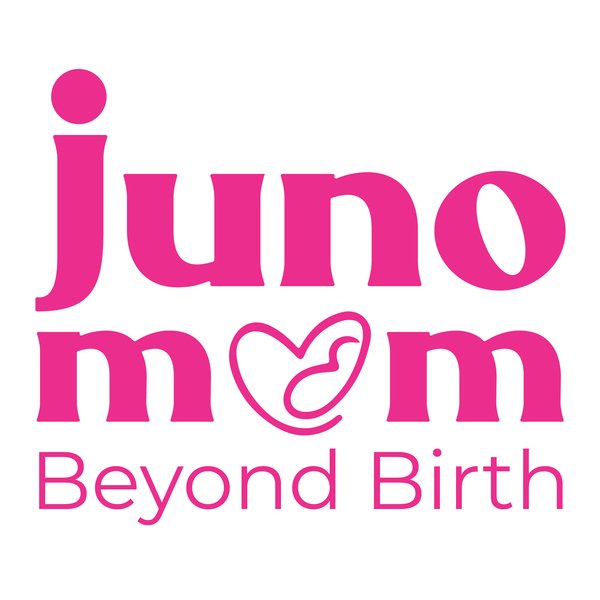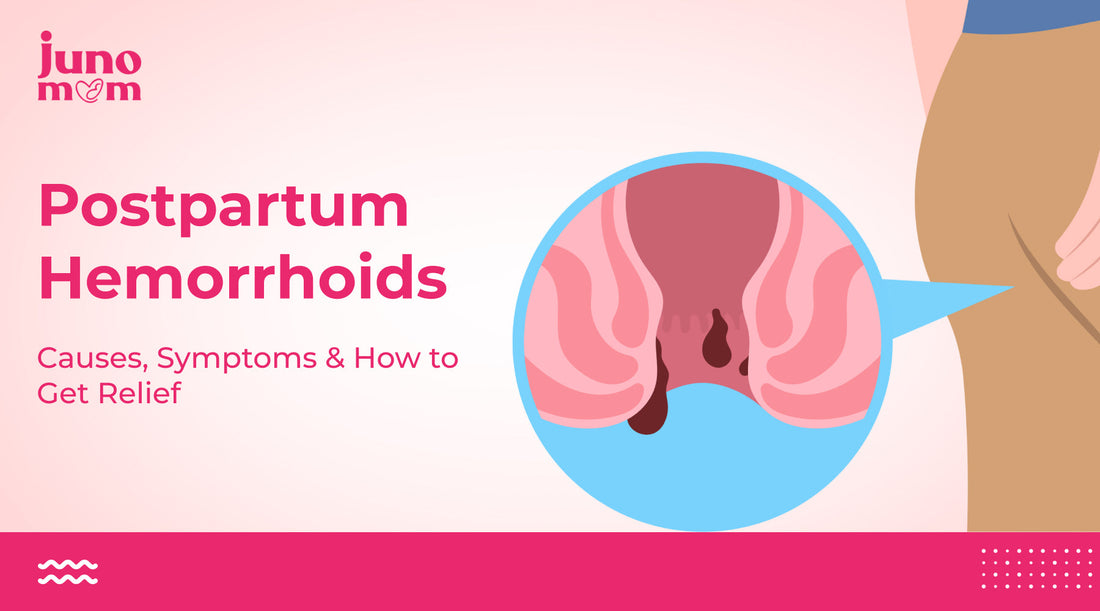Let’s be honest—when we think about postpartum recovery, we usually imagine sleepless nights, sore breasts, and healing from childbirth. But there’s one thing no one really warns you about—postpartum hemorrhoids.
If you've suddenly found yourself wincing in pain while sitting or dreading every bathroom trip after delivery, you are not alone. Many new moms experience hemorrhoids during the fourth trimester, but it’s rarely discussed. And while it’s not the most pleasant topic, it’s an important one!

So, let’s talk about it—what causes hemorrhoids after pregnancy recovery, how you can find relief, and when to seek help. Because just like every part of postpartum care, this too deserves attention!
What Are Postpartum Hemorrhoids?
Hemorrhoids are swollen veins in the rectal area, similar to varicose veins. They can be internal (inside the rectum) or external (outside and around the anus).

During pregnancy life, your body goes through a lot, and one of the side effects can be increased pressure in the lower body. Add third-trimester weight gain and labor pushing, and these veins can become irritated, swollen, and painful.
The good news? They’re common, manageable, and usually temporary!
What Causes Hemorrhoids After Childbirth?
Hemorrhoids often develop due to a mix of pregnancy and labor-related pressure on your veins. Here’s why they happen:

1. Pressure from Pregnancy
As the baby grows, the uterus puts pressure on veins in the lower body. This can slow blood flow and cause veins in the rectum to swell.
2. Straining During Vaginal Delivery
Pushing during labor can make existing hemorrhoids worse or cause new ones to develop due to intense strain.
3. Hormonal Changes
The hormone progesterone relaxes blood vessel walls, which can make them more prone to swelling.
4. Constipation
Many new moms struggle with constipation post-natal, which can make hemorrhoids worse. Straining during bowel movements adds more pressure to already swollen veins.
5. Sitting for Long Hours
Feeding a newborn can mean sitting for long periods, which increases pressure on the rectal area, leading to discomfort.
Common Symptoms of Postpartum Hemorrhoids
If you’re dealing with postpartum hemorrhoids, you might notice:

- Itching or burning around the anus
- Pain or discomfort, especially while sitting or using the toilet
- Swelling or small lumps near the anus
- Bleeding after a bowel movement
- A feeling of fullness or pressure in the rectal area
While uncomfortable, most hemorrhoids heal on their own with the right care.
How to Get Relief from Postpartum Hemorrhoids
Now, let’s talk about solutions! Here’s how you can ease the discomfort and promote healing:
1. Home Remedies for Soothing Relief
Sitz Baths: Soak in warm water for 10-15 minutes, a few times a day, to reduce swelling.
Ice Packs: Apply ice to the area for 10 minutes to numb pain and reduce inflammation.
Witch Hazel Wipes: These provide cooling relief and help with itching and irritation.
Pro Tip: Juno Mom’s witch hazel wipes are designed specifically for postpartum support and can make a big difference in soothing discomfort.
2. Dietary Changes to Prevent Constipation
Eat Fiber-Rich Foods: Whole grains, fruits, and vegetables can help soften stools.
Drink Plenty of Water: Staying hydrated keeps things moving smoothly.
Avoid Straining: Take your time in the bathroom and don’t push too hard.

3. Lifestyle Adjustments
Avoid Sitting Too Long: Try standing or lying down when possible to relieve pressure.
Use a Pillow: A donut-shaped cushion can help when sitting for long periods.
Gentle Exercise: Walking or doing light postpartum-friendly movements can improve circulation and prevent constipation.

When to See a Doctor
Most postpartum hemorrhoids improve within a few weeks, but seek medical advice if you notice:
- Excessive bleeding
- Severe pain that doesn’t improve
- Hemorrhoids that don’t shrink or seem to be getting worse
- Signs of infection (pus, fever, extreme redness)
A doctor can guide you on safe treatments and ensure there’s nothing more serious going on.
Final Thoughts
Postpartum hemorrhoids may be one of the less glamorous parts of after-pregnancy recovery, but they’re incredibly common. The good news? With the right care, they will heal with time.
The most important thing is to be kind to yourself. Your body has done something incredible, and postpartum recovery is just part of the journey. Take care of yourself, stay comfortable, and don’t hesitate to reach out for help if needed.
And remember, you’re not alone in this! Many moms experience this, and with the right postpartum support, you’ll be feeling better soon.



